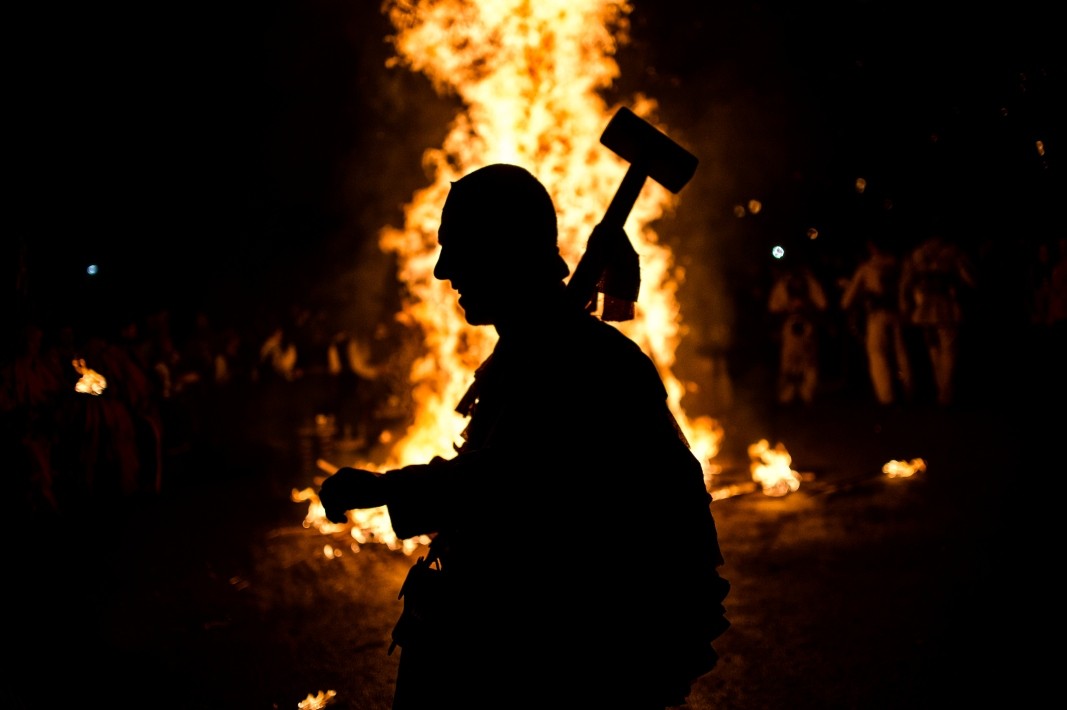Traditionally, the residents of villages in the region of Bulgaria’s Pernik will light the ritual fires also this year to celebrate the Surva holiday. The custom, which is part of UNESCO’s World Heritage Site, dictates that locals disguise themselves on the night of January 13th when St. Basil's Day is celebrated in the old-style calendar. Due to the coronavirus epidemic, however, the international festival of masquerade games of the same name will not take place in Pernik this year.

This year's Surva ritual will be different - not only overshadowed by the persistent virus, but also by the water element that flooded many settlements in the region. That's why the survakari will come out with their scary masks to try to drive away the coronavirus and all evil forces with a fiery dance. In their sayings, they will ask for health during the new year. The Survakari groups will parade along predetermined routes and will knock on the doors of several houses, but without entering them. Also, merging of the groups of survakari from different villages is not allowed this year.

The safety prescriptions prepared by the Regional Health Inspectorate have been handed over to the mayors. One hundred and fifty stewards in reflective vests will monitor the public's compliance with anti-epidemic rules. A thousand protective masks will also be distributed to the participants in the custom.
"Surva" is the biggest winter holiday in the vicinity of the town of Pernik (Western Bulgaria). On the night of St. Basil's Day, the bad forces are chased away and the doors open to the arrival of goodness. It is believed that the scarier the masks, the stronger their magical power.

Photos: archive of EPA/BGNES
Every year, the chitalishte (community culture club) in the village of Kralevo not far from Targovishte, re-enacts Bulgarian traditions and rituals, organizing contests such as “Master lyutenitsa - maker” and “From granny’s dresser”. And for the..
According to popular belief, the color red has the power of the sun and gives vitality to every living being, while white symbolizes purity, innocence and joy . The appearance of the twisted white and red threads, known as martenitsa, means that winter..
The Philip Koutev National School of Folk Arts is not just any school - it is a talent laboratory. It is the first school not only in Bulgaria but in the Balkans for professional study of folklore. It is located in the heart of the beautiful town of..

+359 2 9336 661
